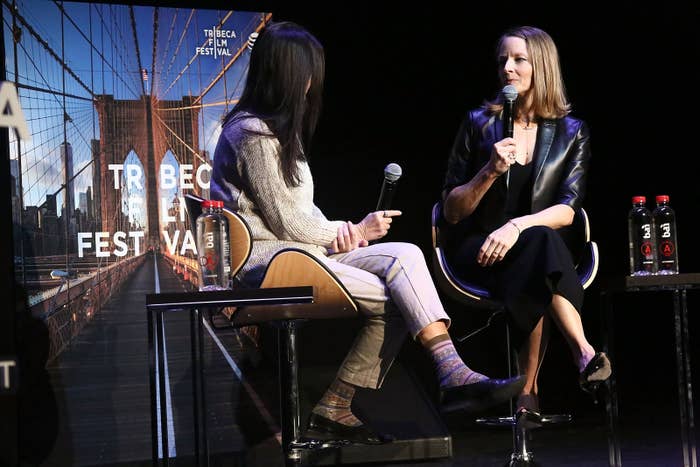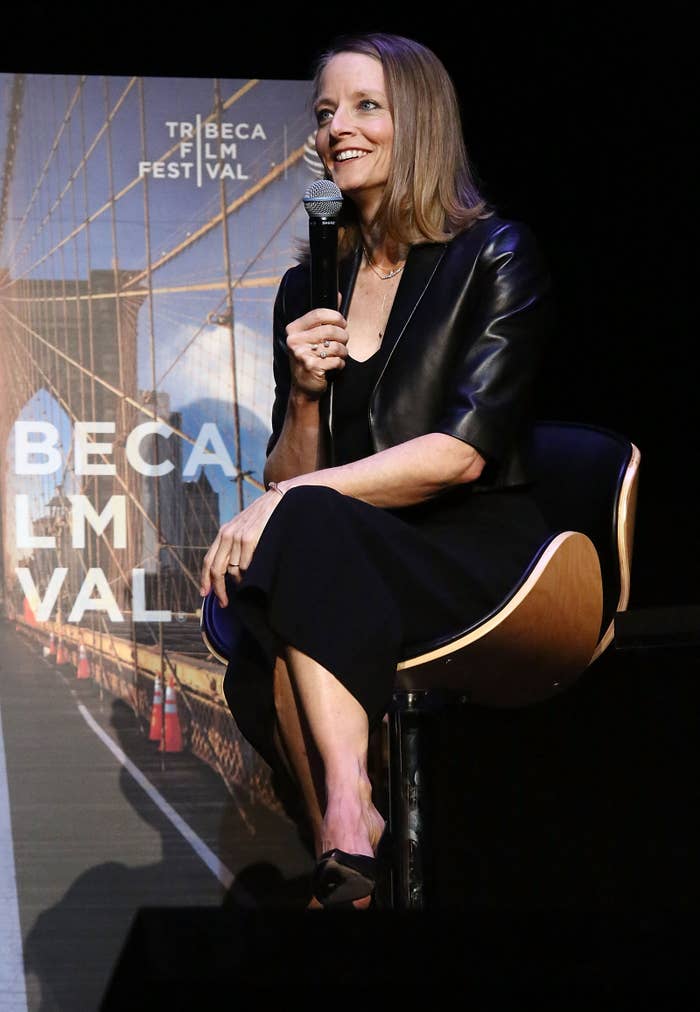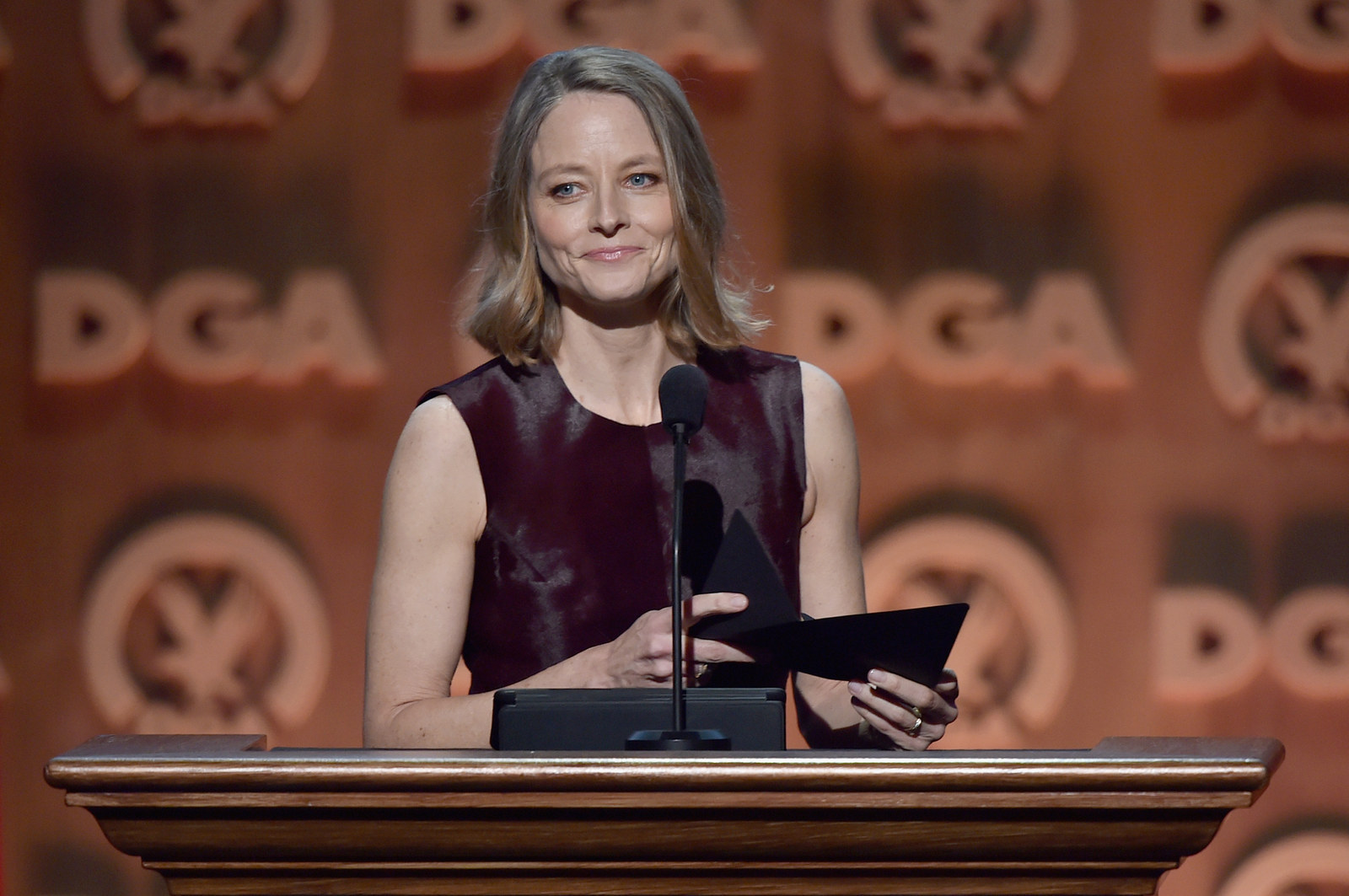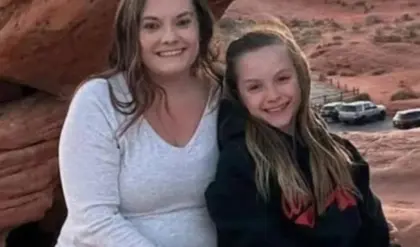“I think [film studios] still see women as a risk, and I’m not really sure why,” she said at the Tribeca Film Festival.

Astrid Stawiarz / Getty Images for Tribeca Film Festival)
Directors Julie Taymor and Jodie Foster talk during the 2016 Tribeca Film Festival at Spring Studios on April 19 in New York City.
Gender inequality in Hollywood — along with racial discrimination — has become one of the most stirring issues in the entertainment industry over the last few months.
However, at a Tribeca Film Festival event in which film and theater director Julie Taymor interviewed Jodie Foster on Wednesday evening, Foster said she’s “sick of the women thing” when it comes to conversations about directing. Though Taymor seemed to agree with Foster’s sentiment, she added, “We don’t want to ignore it either.”
“It’s real,” Foster assented. “It’s been a very long time that there are very few female filmmakers. It’s not just today, it’s not just this week. I mean, that’s always been true. Things changed a lot in Europe, for example — lots of female directors; in television, quite a few female directors.”

Astrid Stawiarz / Getty Images for Tribeca Film Festival
Foster during the 2016 Tribeca Film Festival.
When asked why she thinks that’s been the case, Foster continued: “I think the more financial risk … the less risky studios can be. … I think they still see women as a risk, and I’m not really sure why.”
Foster, who began her acting career in the ’60s and made her feature directorial debut in the early ’90s, said she’s noticed “differences between men and women directors.” “Sometimes it’s hard for people to understand how to treat me as a leader,” Foster said of her time in the director’s chair. “They are sometimes waiting for me to punch them in the face, which I’m not going to do. Or sometimes they are waiting for me to say, ‘Oh, your idea’s so smart. Let’s just do it your way.’ … Sometimes it’s confusing for people. … Do they treat [women] the way they treat men? And maybe you don’t because women have different leadership styles.”
“I wasn’t sure about that, but I see that it’s true now,” she added.
Foster noted she’s “worked with a lot of men directors,” but only one fellow female director in her acting career: Mary Lambert, who directed her in the 1987 film Siesta.
But Foster did say she has a “favorite female director”: The Silence of the Lambs‘ Jonathan Demme. “He was the one guy who really understood,” she explained. “He was able to say, ‘OK, this is about a woman who is our hero.’ The film was informed by that. It’s why the film is not filled with gratuitous violence. It’s why, yes, it was horrifying and difficult to watch in some ways, but … he’s the brave heart of that woman’s voice.”

Alberto E. Rodriguez / Getty Images for DGA
Foster at the 67th Annual Directors Guild of America Awards on Feb. 7, 2015, in Century City, California.
During an audience question-and-answer segment later during the Tribeca event, one woman asked Foster, who was promoting the forthcoming George Clooney and Julia Roberts film Money Monster that she directed, why she’s sick of the discussion surrounding women in film.
“I feel like the issues are way more complicated than the dialogue. Saying, ‘Well, why aren’t there any women directors in the big mainstream franchises?’ is just an incredibly simple question,” Foster explained. “There are so many reasons and some of them are about psychology, some of them are about the financial worlds and are about the global economy, and some of them are about any number of things. But there are so many answers to that question that go back hundreds of years. And it would be nice to have a more complex conversation and to be able to look at it as more than just a quota or numbers.”
“I just don’t think it’s as cut-and-dry as everybody thinks it is,” she continued. “And I don’t think it’s a plot, I don’t think that there’s anyone making plots to keep women down somehow. It’s a bunch of people who aren’t thinking about it, including a lot of female executives that have risen to the top and have not really made a dent in bringing more women into the mix.”


